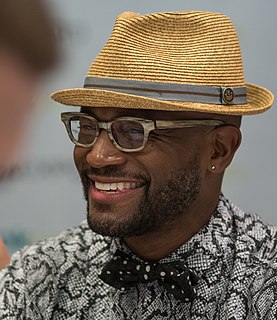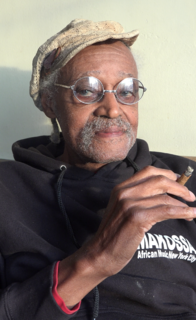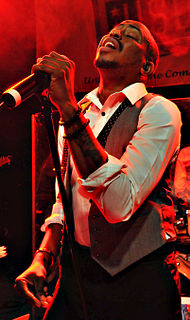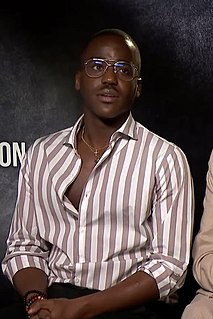A Quote by Amandla Stenberg
Whenever black women have a point, they're characterized as angry black women, and therefore the thing they're talking about is no longer of importance because they have to deal with them being overly emotional or something. I recognize that people who respond negatively to what I have to say aren't at a place yet where they are able to learn ... And it's exactly what I'm trying to fight.
Related Quotes
There are more than 100 million African women who go topless at some point in the day, each and every day, to honor both God and our ancestors. So being in a country like America where nothing is hated more than the image of the black woman, even by black people'because her womb produces the black man and makes us black'I find it of grave importance to implement African images, and especially to produce media images that acknowledge the sexual power and fertility of black women.
Katherine Johnson never complained, it just was what it was. She just said, "I just wanted to go to work and do my numbers." And she stopped right there. I think about that as a Black woman in Hollywood when I'm asked about diversity. I hate when people say diversity because the first thing you jump to is Black and white. When you talk about diversity, you're talking about women being hired in front of and behind the camera. You are talking about people with disabilities, the LGBTQ community...so I hate when people think about diversity.
When you say 'the man of the house,' the black woman has been the woman and the man of the house, because black men have so often had to spend all of their time and energy working and trying, at least, to give their families the basic needs. So black women, I find, are not really concerned about women's liberation.
I think empowerment of women is exactly what's happening now, with women being portrayed as human beings, and not just black and white. Men can be the anti-hero all the time, and it's cool, but when women are, they're twisted or messed up or something is wrong with them. I think it's just about portraying women in the world as equals to men, and vice versa.
I have this problem where it's like'I can never stop thinking. For instance, I find myself obsessing over the treatment of black women and girls by black men'the fact that black men have a special prejudice against black women and generally don't protect them or attempt to understand them, and I cry an awful lot about that.
There are many things that black women can continue to do to help black folk. First, black women have historically been among the most vocal advocates for equality in our community. We must take full advantage of such courage by continuing to combat the sexism in our communities. Black women, whether in church, or hip-hop, don't receive their just due. Second, when black women are in charge of child-rearing, they must make ever so sure to raise black children who respect both men and women, and who root out the malevolent beliefs about women that shatter our culture.
I'm an African woman, I suppose these thoughts torture me more than they do black American people, because it's like watching my own children trapped in a car that's sinking to the bottom of a lake and being impotent to save them'the black Americans have their own holocaust going on. You see the black man erasing black children from the landscape, you see black women desperately trying to get the black man's attention by wearing blonde hair and fake blue eyes, 500 years after he sold her and their children across the ocean.
Hair in the black community is such a big thing culturally. The barbershop is a place for black men to socialise, catch up and bond. It's the same for black women in the salon. Going there is my favourite thing to do in the week. You catch up with people, someone comes around with food, someone else is selling something.
It's very necessary, showing the positive aspect of a black father. We see a lot of black women being the head of the household and holding the house down, but I think we need to have those images because there are black fathers out there who are doing the same thing and who are the glue to the family. That's who Black Lightning is.

































